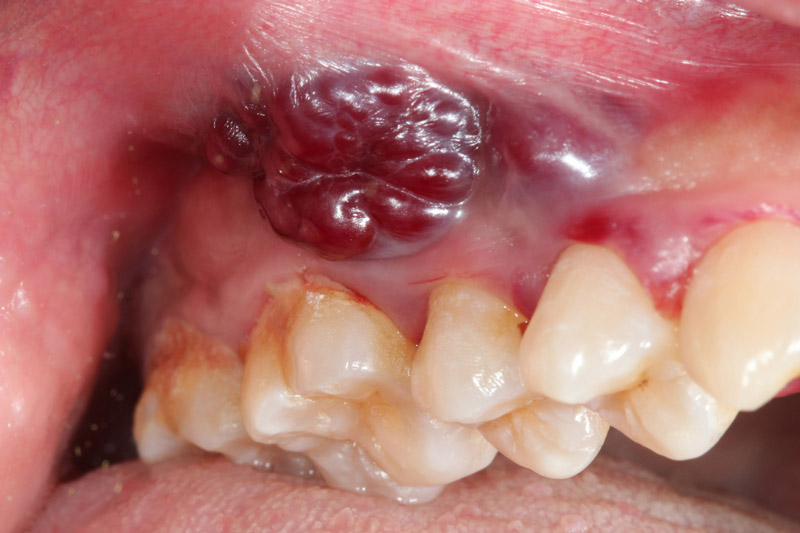Oral Cancer Survival Rate by Age

Every year, approximately 50,000 Americans receive the dreaded news that they have oral cancer and, after five years, the survival rate regardless of age is just 50% due to the tumor being discovered too late. Obviously, when you are younger your body has a better ability to fight any kind of illness and disease, but there are no solid figures that indicate exactly how big a role age plays in the survival rates of oral cancer.
A Brief Overview of Oral Cancer
The risk of oral cancer is relatively high, especially in older patients, and can grow in several places in the mouth including:
- Lips
- Gums
- Tongue
- Roof and floor of the mouth
If you are lucky enough to get an early diagnosis, then cancerous tumors, lesions, and growths can be successfully removed via surgery or radiation therapy and ensure a good quality of life for years to come. Usually, the first person to spot a cancerous lesion or growth in your mouth will be a dentist, which is another reason why regular visits to the dentist are essential to maintaining good health.
This type of cancer can be fatal and it should be taken seriously, especially by men- who are more prone to developing cancer of the mouth, as well as those who smoke or drink to excess.
What Are the Symptoms of Oral Cancer?
As mentioned above, during the earlier stages of the illness you might not notice any symptoms at all. However, be vigilant of the following warning signs that could indicate mouth or throat cancer:
- Sores that won’t heal
- Bleeding sores
- A lump or growth in the inner lining of your mouth
- Your teeth feel loose
- A painful tongue
- Pain or stiffness in the jaw
- Chewing becomes painful or difficult
- It hurts when you swallow or you struggle to swallow with ease
- A permanently sore throat
If you notice that you have any persistent symptoms such as those outlined above, then your dentist should be your first port of call to have your mouth thoroughly checked out.
Risk Factors of Oral Cancer
While there are never any guarantees in life, especially when it comes to falling ill to a disease like cancer, there are a few known risk factors listed below that can reduce your chances of developing oral cancer if you avoid them.
- Tobacco—both smoking and chewing it
- Drinking too much alcohol
- Too much sun on your lips
- HPV infection, which is a common sexually transmitted disease
- A weak immune system
How to Prevent Mouth Cancer
Sadly,like with breast cancer and testicular cancer, there is no way to guarantee that you won’t become a victim of oral cancer. However, you can greatly improve your chances of not exposing yourself to the disease by being mindful of the following:
Ditch the cigarettes and other tobacco products. Regardless of whether you smoke or chew tobacco, you want to think about quitting A.S.A.P. Every time you reach for a cigarette, you are exposing your mouth to a number of cancer-causing chemicals where the damage cannot be reversed easily, especially as you get older.
Moderate your alcohol intake. If you are always binge drinking, or regularly drinking too much booze, then you are making your mouth vulnerable to cancer. Men should drink no more than two alcoholic beverages per day and women should stick to one.
Be sure to get your five a day. Eating a diet that consists of a large amount of fruit and vegetables will allow you to enjoy the effects of all the natural vitamins and antioxidants found in them, which, in turn, could reduce the risk of mouth cancer.
Use sunblock on your lips. Most people only put sunscreen on their skin when they are in strong sunlight and forget about their lips. Your lips can actually be very sensitive, so you should endeavor to protect them from the sun as much as possible.
What Are the Survival Rates of Oral Cancer?
While it is not an imminent death sentence, oral cancer can be fatal if you don’t discover and treat it as soon as possible. The survival rate is around 81% if mouth cancer is diagnosed sooner rather than later, but as it is normally only discovered during the later stages of the illness, the death rate is just over 45% when diagnosed at five years. Lack of public awareness and information on the importance of cancer screening is the reason for the majority of late-stage diagnoses. An illness that starts as a small sore or growth in your mouth can end up spreading to other parts of your body and as it grows, it gains more potency, making it one of the most aggressive forms of cancer in existence. The next time you see your dentist, be sure to ask him about cancer screening opportunities in your local area.
Providing the cancer has not spread to your lymph nodes or other internal organs, the success rate for treating the disease is high. 68% of individuals diagnosed with oral cancer will survive for at least five years after diagnosis and the majority of them live normal lives for a relatively long time. However, if the cancer has indeed spread to your lymph nodes and they have become cancerous, 25% of cases are fatal.
Final Thoughts
Being diagnosed with cancer is everyone’s biggest fear, especially as the mortality rates are relatively high. It is a disease that can become incredibly severe very quickly and your best chance of overcoming it and being able to live a long and healthy life is to discover it and kill it before it has the opportunity to progress further. Everyone is advised to take the time to ensure that they are not consciously putting themselves at risk to potential cancer-causing habits and also to be vigilant of what is occurring inside their bodies. If you notice any changes in your oral health that bother you, then even if it is a simple infection or canker sore, it is worth consulting a professional to get an accurate diagnosis. It is always better to be safe than sorry, especially when it comes to your health, especially as oral cancer has a five-year survival rate for many oral cancer patients who are diagnosed.
Relate Posts to Read:
What Are the Oral Cancer Stages?

